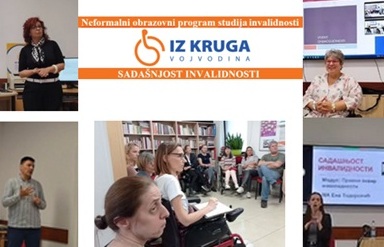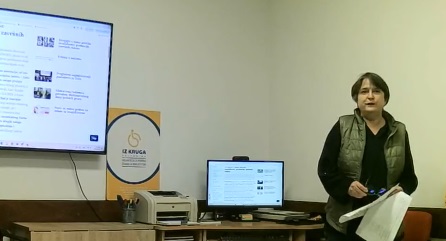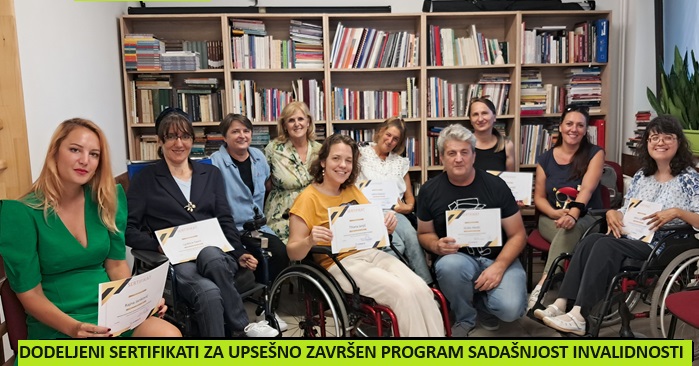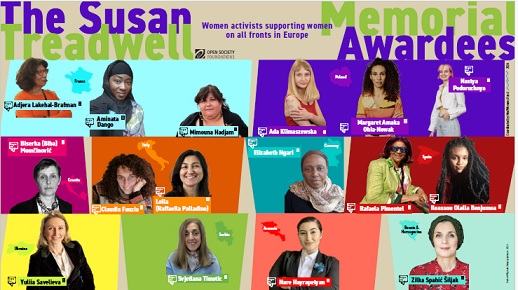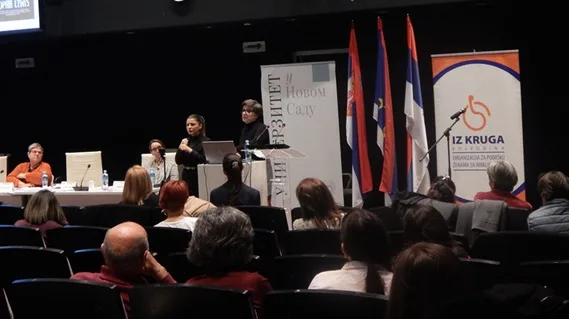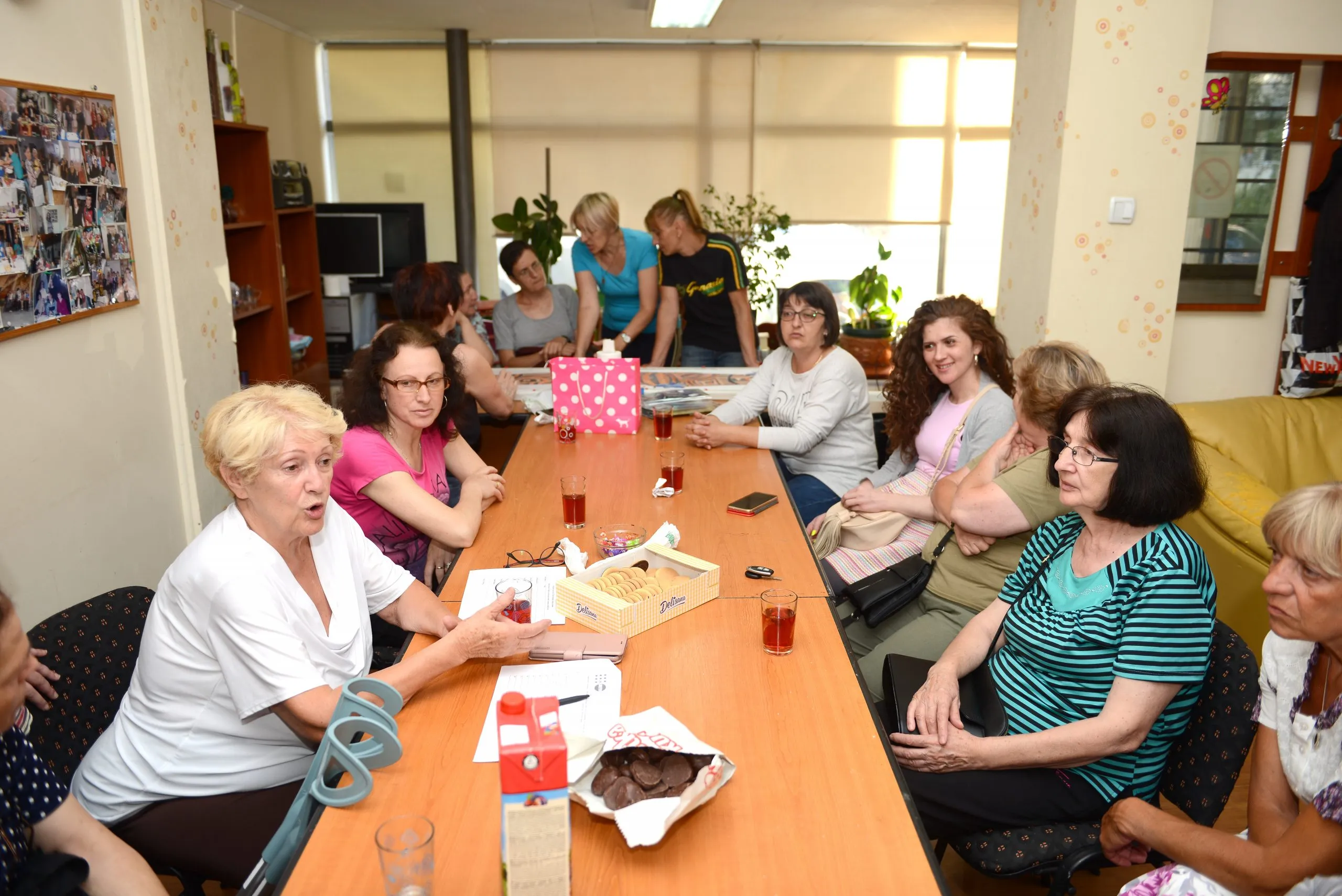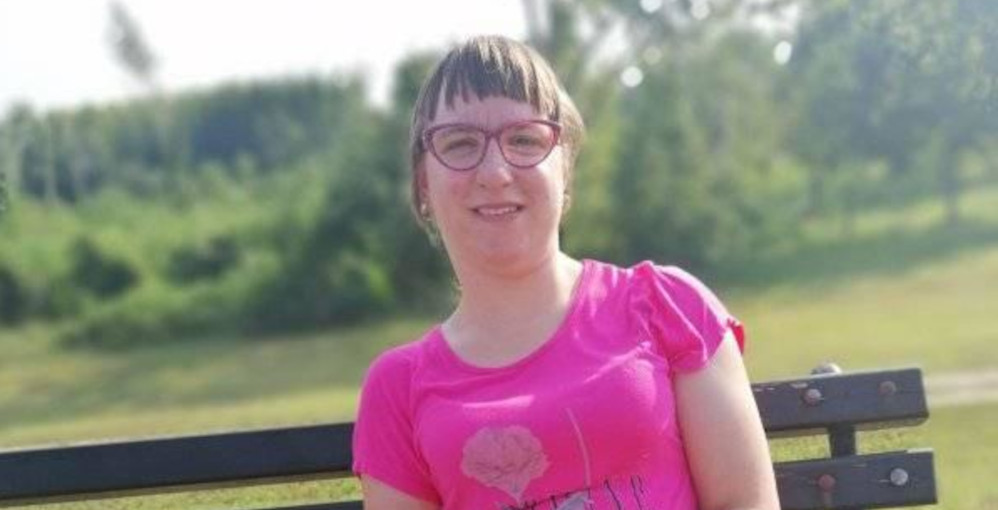The associate of IZ KRUGA VOJVODINA, Ankica Dragin, on October 7, 2022. in the premises of the Association of Multiple Sclerosis Mala Backa in Backa Topola held a training for members of the Association whose mother language is Hungarian, aimed to raise their capacities and skills for advocacy and to promote sexual and reproductive health and rights.
In the first part of the training the trainer introduced the participants to the work of the organization IZ KRUGA VOJVODINA and then talked about types, models and terminology of disability, sexual and reproductive health, and rights of women with disabilities and obstacles they face in exercising their rights. In the second part of the training they talked with the participants about public actions that women with disabilities whose mother tongue is Hungarian might organize in Backa Topola, mapping obstacles, lobbying for their rights and devising an advocacy plan.


The trainer presented examples of actions members of The Initiative of women with disabilities for the promotion of sexual and reproductive rights in Serbia realized in their municipalities. The participants were invited to join the work of The Initiative and act together with women from other municipalities to improve the sexual and reproductive health and rights of women with disabilities.
When asked whether sexual and reproductive rights are a woman’s or a man’s issue, the participants answered:
– It is a common issue.
– Since we talk about reproduction and it is the woman who prolongs the species and gives birth, it is a female issue. Then again, a woman cannot make a child by herself, so it is still both a woman’s and a man’s issue.
The participants believe that women with disabilities are exposed to high pressure from the environment and that all responsibility lies within them if they cannot or do not want to have children.
– It’s a woman’s fault to be born as a female. It’s her fault if she cannot have children. It’s her fault if she doesn’t want to have children. It is always her fault.
Women with disabilities named the main obstacles they face when they go to gynecological check-ups in Backa Topola:
– The gynecological department is detached from the Health Center. To get to it, one has to go up numerous stairs. Compared to the Health Center which has a lift, a ramp and handrails gynecology is inaccessible to women with disabilities.
– We have no information if the gynecological department has a hydraulic gynecological table. It might, but we do not know where it is.
– Even if they acquire a hydraulic gynecological table, I am afraid it will be placed in some cellar, won’t be used and women won’t know that we have it. I am speaking from experience from some other situations.
The obstacles women with disabilities whose mother tongue is Hungarian face in exercising their sexual and reproductive rights in Backa Topola will be mapped, documented and presented to relevant actors and the general public to motivate them to take action to improve the current situation.
The training is a part of the project Improving sexual and reproductive health and rights of women with disabilities through increasing their ability for advocacy and sensitization of health workers. It is realized in cooperation with the United Nations Population Fund (UNFPA).

